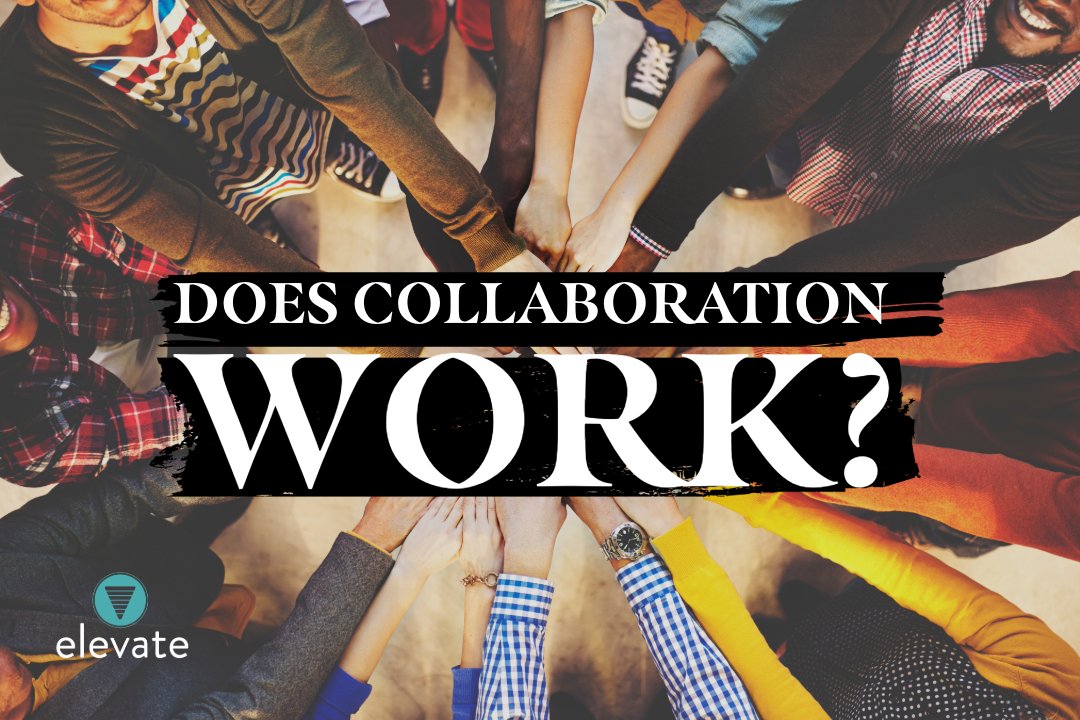Does collaboration work?
Written by Amy Merritt Campbell
Somebody asked me the other day if I really believed in collaboration. We were kvetching about the challenges of doing Collective Impact work, and at the time, I sort of laughed it off and made light of it. But it made me think…do I really think collaboration - amongst organizations within a social service landscape, to solve a specific social challenge or improve outcomes for a certain population - works? And if so, what makes it successful?
Here are a few things I’ve learned from our work that would inform my answer:
Collaboration requires INTENTION. It requires thoughtfully considering the problem you’re trying to solve, taking the time to understand it deeply and from many angles, and getting clear about who the right people are to solve it. A couple of times I’ve been invited to facilitate collaborative conversations between partners who were encouraged to collaborate by funders (whose hearts weren’t really in it) or who weren’t interested in clearly defining the problem before jumping in and trying to solve it. None of these have panned out. It takes thought, effort, and energy to create shared understanding, to bring folks along, and to move forward together in alignment to a shared value set.
Collaboration requires COORDINATION. Collaboration does not happen without the people behind the scenes building relationships, scheduling meetings, facilitating conversations, pulling the data together, and basically making the magic happen. Sometimes it’s hard for organizations (or funders) to justify these costs, because it feels like it’s pulling money from more programmatic types of outcomes that directly impact community members. I get that. But I’ve seen it over and over again - collaboration is only successful when it’s staffed appropriately.
Collaboration requires DISCIPLINE. Collaboration is a long game. It’s easy to get distracted or discouraged, but successful collaboration requires discipline - disciplined planning, implementation, and learning. adrienne maree brown, in her book Emergent Strategy, says that the large is a reflection of the small. The small things that require discipline - celebrating short term wins, making time for learning, being principled about your values, showing up consistently and transparently and authentically, building and maintaining real relationships, listening and learning and pivoting and trying again - these are the things that will make or break a collaborative effort.
Finally, collaboration requires HOPE. Collaborating with others to bring about change, especially change in complex systems, takes a long dang time. Plans fail. Policies change. You lose funding. Sometimes it’s hard to see the other side. In our evaluation work, it’s easy to measure the success of a program, within a relatively short amount of time, and that success fuels optimism about the program. But collaboration and changing systems is different. Instead of looking backwards to what has worked in the past, it requires us to look forward towards what might be. It requires us to cast and recast the vision of what the world might look like if we succeed. It means we have to believe the work is good and right, even if we can’t see the payoff immediately. I’m not saying we have to set aside realistic expectations - realism is the necessary counterbalance to hope; it keeps it in check. But I am saying that the only way collaboration can survive is if we believe that it can.
So, do I believe collaboration can work? Call me a hopeless optimist, but I believe if you’re willing to commit to these things, then yes, I do believe it can work. We just have to be willing to put in the effort.


